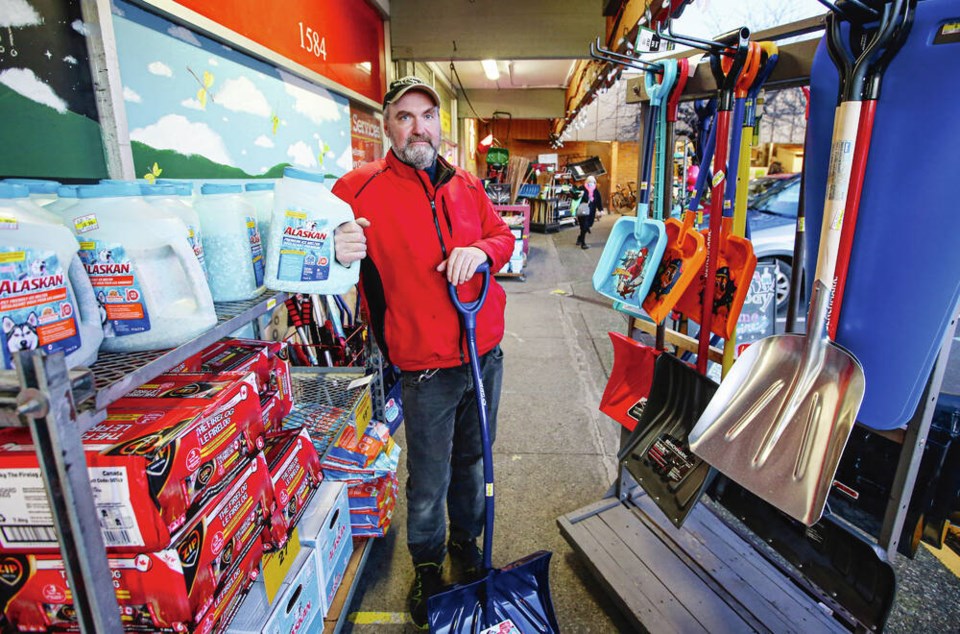There may be a few more sleeps yet, but it’s almost a certainty that everybody on Vancouver Island will wake up to a white Christmas this year, Environment Canada said Monday.
Temperatures throughout the region are set to drop this week, with a high around 2 C during the day and a low of minus-3 C on Christmas Day. Moist Pacific air is also moving into the area and when the two systems meet, snow will fall.
“A cold arctic air mass is moving into the region and with it an almost 100 per cent chance that there will snow on Vancouver Island ,” said Doug Lundquist, meteorologist with Environment and Climate Change Canada. “December is usually the coldest month of the year in this region, so this weather is pretty normal.”
It is only significant because of the days it falls on.
He said that the cold weather system will result in the chance of a rain-snow mix as early as Thursday and the frigid temperatures could last for at least a week, from Christmas to the New Year. People should expect to see snow stick, especially at the higher elevations.
“It can be a bit of a headache so plan ahead if you intend to travel to Vancouver or the Interior, especially on Highway 3 and 99, which are already scary at the best of times,” he said.
Lundquist cautions that the weather pattern can change over the next few days and he can predict the possibility of a white Christmas with more certainty by Thursday.
Meanwhile, Environment Canada has issued a statement warning of freezing drizzle this afternoon, followed by freezing rain at night on parts of inland eastern Vancouver Island, including Campbell River, Comox, Nanaimo, Duncan and the Malahat Highway.
To be officially declared a white Christmas, Environment Canada requires there be at least two centimetres of snow on the ground on Dec. 25.
Should snow fall, the City of Victoria will deploy its fleet of tandem axle and single axle trucks with plows and salters to clear city streets. City crews also use an assortment of machines with brooms and buckets to get into spots the bigger machines are unable to navigate.
In Saanich, residents might see municipal crews get ahead of icy thoroughfares by pre-treating roadways with road salt or an anti-icing brine as temperatures drop. Under ideal conditions, the brine can be effective for up to three days.
In Victoria, snow removal will happen first for emergency routes, major arterial streets, hills, bridge decks. Also a priority are downtown transit stops and wheelchair ramps, and sidewalks fronting downtown city properties.
Owners are responsible for clearing snow from sidewalks in front of their properties and are encouraged to assist neighbours if they need help.
Many hardware stores are well-stocked with cold-weather supplies. “We have about eight dozen snow shovels in stock and lots of ice melt — even the pet-friendly kind,” said Peter Fargey, Ross Bay Home Hardware store manager.
He sells between 200 to 300 units of ice melt every year, and double that number if it snows. The bags range from five to 18-kilograms and cost between $10 and $40.
For those who delight in reveling in the snow instead of shovelling, the store also carries toboggans.



